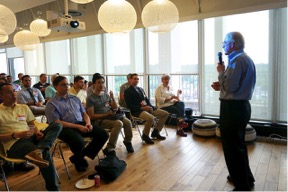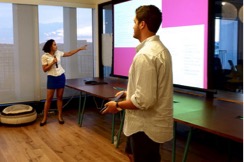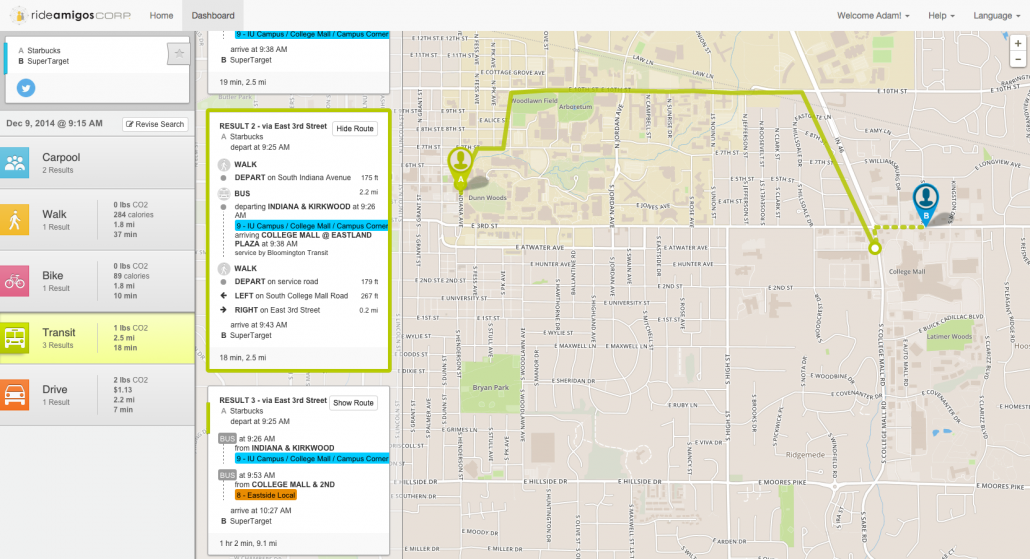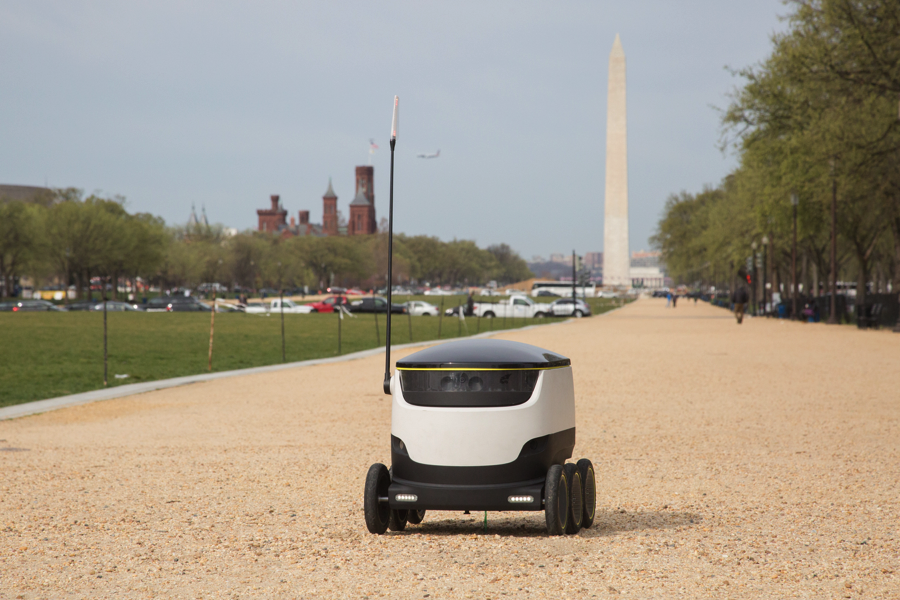The proliferation of mobile technology and the rapid acceleration of computer processing power have driven a renaissance of innovation across fields that have long remained static. This has led tech firms to set their sights on “moonshot” projects that propose grandiose solutions to our most pressing problems, such as:
- To prevent the unnecessary loss of 35,000 American lives in car accidents every year, Google is building its popular self-driving car.
- To reduce congestion created from deliveries in urban centers, Amazon is developing drones that could deliver anything from diapers to medication.
- To make commuting more economical, a number of smartphone apps seek to streamline the process of carpooling and ridesharing in order to eliminate single occupancy car commuting.
Given an appropriate amount of regulatory oversight and consumer demand, all of these projects will eventually result in tremendous social benefits.
But not every innovation has to be a moonshot. While Google’s self-driving car has the potential to reduce the number of collisions caused by human drivers and reduce congestion, we cannot afford to sit idly by and wait for tech companies to overcome challenges on our behalf.
Recognizing this immediate need, innovators across the country have focused on the pressing issues of urban congestion, sustainability, and shifting city demographics.
Innovators in Washington
In Washington, DC, a burgeoning sector of transportation and tech innovators has recognized the need for more immediate and localized changes.
To this end, Mobility Lab’s Michael Schade and Howard Jennings have formed a coalition of startups, policy wonks, and innovators called Techies DC. The group meets to discuss the latest trends in mobility and present their ideas to one another.
On Thursday, August 18th, Techies DC brought together over 50 people to hear presentations from 6 transportation tech companies – 4 of whom began at local startup incubator 1776.
Among the presenters was Prachi Vakharia, the business development lead at RideAmigos, a transportation management platform that works with organizations and government entities to promote sustainable and multimodal mobility options.
Vakharia detailed RideAmigos’ recent partnership with Google as an example of how the platform can influence people to shift their commuting patterns away from single occupant vehicles. In partnering with Google to promote Bike to Work Month, RideAmigos employed a three-pronged approach to incentivize Google employees to bike to work:
- Giveaways and gifts to encourage participation
- Implementing a point system wherein employees receive virtual coins every time they complete a “green trip” (in this case, on a bike), that can be redeemed for gift cards of their choice
- Competitions with fellow Google employees through peer challenges
The value of RideAmigos is in its simplicity. The online platform is similar to interfaces that people are already familiar with, like Google Maps, and users are encouraged to use transit options that have always been available to them (i.e. buses, trains, biking, and walking).
Yet it is the novelty of RideAmigos’ strategy that contributes to their success. In discussing RideAmigos’ strategy, Vakharia emphasizes that people typically do not choose to change their commutes on a whim – or even for the sake of convenience.
“People don’t just change their travel habits – it happens as a result of significant events,” says Vakharia. She went on to cite the London Olympics as an example, where 35% of people changed their commutes to avoid congestion during the games. Out of that group, 15% kept that change.
Capital Convergence
To best understand how the Washington region has distinguished itself as a hub of innovation and fostered the expansion of mobility tech companies like RideAmigos, the Eno Center for Transportation will convene its second Capital Convergence conference on January 26th, 2017 at the Walter E. Washington Convention Center.
(The agenda of Eno’s March 2016 Convergence is here, an overview of the proceedings is here, and we also have write-ups of the panel discussions on urban mobility, autonomous vehicles, freight technology, mobile mass transit apps, data collection, and the wrap-up “where do we go from here” panel.)
The Washington region is uniquely suited to become a hotbed for policy innovators and entrepreneurs in transportation tech, thanks to its position at the epicenter of American politics and a thriving ecosystem of information technology companies in northern Virginia and Maryland.
RideAmigos is but one example of private sector success, with its focus on partnering with cities to help them meet both sustainability and transportation demand management goals. This illustrates how the region has melded local expertise in technology, transportation, and public policy to solve pressing social issues.
The DC City Council has led the charge as one of the first cities to allow transportation network companies (TNCs) to operate and has passed legislation allowing autonomous vehicles to operate within its city limits.
Of course, Washington also has its fair share of moonshot projects. This summer, the DC City Council passed legislation allowing a first-of-its-kind test of sidewalk-operated delivery drones on Washington, DC sidewalks. The drones, developed by Starship Technologies, will begin making door-to-door deliveries in a one mile testing zone through a pilot project this September.
The region is also home to the first pilot of Olli, a 3-D printed autonomous vehicle that is being tested by Local Motors in National Harbor, Maryland.
The Eno Center will hold Capital Convergence in conjunction with the Washington Auto Show to identify best practices and lessons learned as the region has fostered innovation, leading up to a networking reception during the Washington Auto Show’s Sneak Peak.
Highlights include transportation technology demonstrations and an exciting keynote address, as well as panels on:
- Infrastructure and Innovation
- Digital Cities
- Technology and Freight
- Open Data and Transportation
- Autonomous Vehicles
- Innovative Partnerships
- Sustainable Transportation Technology
Registration will open on Monday, September 12, 2016. Sign up for our latest updates and announcements regarding Capital Convergence here.







